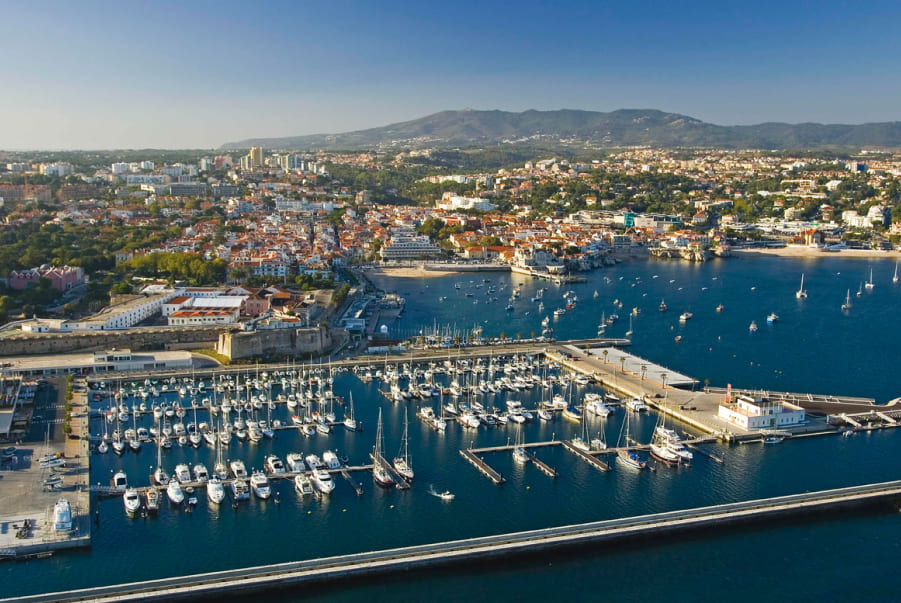Company Registration in Portugal
Migration services for foreigners with a 100% guarantee of results.
Migration services for foreigners with a 100% guarantee of results.


Starting a business in another country can be challenging, but it's also a great opportunity to expand your horizons. If you're considering starting a company in Portugal, you're on the right way. In this guide, let's talk about setting up companies in Portugal for non-residents in 2024. We'll talk about what types of companies can be set up in Portugal, what the legal requirements are, and take a step-by-step look at the incorporation process.

Portugal stands out among other European countries for its strategic location, favorable business environment, and tax regime. Every year Portugal becomes more and more interesting for entrepreneurs and companies. Whether you are a sole proprietor, a small business owner, or a large corporation, there are various business structures available in Portugal to suit your needs. The experts at Move to Cascais are ready to assist you with company registration in Portugal.
Portugal is currently experiencing a boom in its development, including economic development. A skilled labor force and high quality of life make Portugal an attractive destination for business. In addition, access to European and global markets and various privileges for foreign investors add to the country's attractiveness.
There are several types of business organizations that you can set up in Portugal, each with its unique characteristics and advantages.
If you find it difficult to choose the type of company for your business, we will advise you and assist you in registering a company in Portugal.
This is the simplest form of business that is owned and operated by one person. It is ideal for small businesses and freelancers.
Important Features:
-min.jpeg)
To register, you need to fill out a declaration of commencement at your local branch or through the tax portal and register with the social security authorities.
This type of company is popular among entrepreneurs because of its flexible structure and limited liability.
Important Features:
A company with a single shareholder.
Important Features:
It is a company with unlimited liability in which the shareholders are liable without limitation and jointly and severally with each other.
Important Features:
It's also one of the most popular types of company.
Important Features:

The form of a public limited liability company.
Important Features:
Some services can be challenging to handle on your own. Trust our team of professionals to guide you through every step.
A company in which there are two types of partners:
Important Features:
It is an autonomous non-profit legal entity, freely constituted, with variable capital and composition, to meet the economic, social, or cultural needs and aspirations of its members.
Important Features:
An association is a group of people united by common goals and interests. Despite having assets and financial operations, this type of organization develops on a non-profit basis because when members want to make a profit, they can form a company.
The Association is composed of three units:
It is also mandatory that associations are free to pursue their objectives without interference from state authorities and cannot be dissolved by the state.
If you have a company and want to expand your operations to another EU country, you may want to consider setting up a European company. A European company, also known as an SE (from the Latin Societas Europea), is a type of public limited liability company that allows it to operate in different European countries under the same rules.
Important Features:
More about opening a European company here
The cost of company registration in Portugal depends on the type of business and specific tasks. You can discuss this issue in more detail during a consultation with our specialist.
Non-residents wishing to incorporate a company in Portugal must fulfill certain legal requirements to ensure compliance with local law.
The first step for non-residents is to obtain a Portuguese fiscal number (Número de Identificação Fiscal or NIF). This number is required for all tax-related activities. What the NIF is, what it is for, and how to obtain it, read in our article.
Company registration in Portugal requires non-residents to appoint a legal representative residing in Portugal to conduct legal affairs on their behalf. This representative will also be responsible for tax obligations. From 2023, this condition is mandatory for the registration of any activity, even for the registration of self-employment.
Registering a company in Portugal involves several important steps, each of which is crucial to the success of your business. Move to Cascais is ready to be your reliable ally in starting a business in Portugal.
To register a company, you need to apply to the Portuguese Commercial Registry.
The Commercial Registry (Conservatória do Registo Comercial) is a public registry that registers and stores information on commercial organizations operating in the country. This information includes companies, their legal status, business activity, and financial information. The commercial registry has several important functions:
The main function of the Portuguese Commercial Registry is the registration of new businesses, including limited liability companies, public limited liability companies, sole traders, and branches of foreign companies. Registration involves entering the name of the company, its legal structure, articles of association, and other fundamental details into the register.
The registry keeps a detailed record of basic information about each registered company, such as the names of directors and shareholders, the office address, and the capital structure of the company.
The registry is a public document, which means that anyone can access information on registered companies. This promotes transparency and allows the screening of potential business partners, investors, and other stakeholders.
Companies are required to keep their information up to date. Any changes to the company's name, address, directors, shareholders, and capital must be submitted to the register.
Companies must file annual reports, which are also kept in the Trade Register. This helps to ensure that companies comply with financial regulations and provides a historical record of their performance.
The registry helps to ensure compliance with Portuguese laws and business regulations, by keeping up-to-date and accurate records.

For non-residents wishing to register a company in Portugal, the Trade Register is the most important institution. It is the official body that processes and validates all the documentation required to legally establish and operate a business in Portugal. Understanding the role and requirements of the Trade Register is essential to ensure a smooth and compliant registration process.
Pick a name for your company and check its uniqueness at the Institute of Registers and Notaries (IRN).
Drafting articles of association is a key step in setting up a company in Portugal. This document describes the structure, objectives, and operating procedures of the company.
Open a corporate bank account in Portugal to deposit the minimum authorized capital and manage the company's finances.
Basic documents, including articles of association and proof of initial capital, are submitted to the Registry. Once all documents have been submitted and approved, the company is officially registered and its details are entered in the Commercial Register. Once registered, the company receives a certificate of incorporation with a company registration number in Portugal (NIPC), which confirms its legal status.
Some activities require licenses and permits for both the individual professional and the company. The need to obtain such licenses should be taken into account when discussing the cost of incorporating a company in Portugal.
The company registration number in Portugal, known as Número de Identificação de Pessoa Coletiva (NIPC), is a unique identifier assigned to a commercial enterprise when it is registered in the Commercial Register (Conservatória do Registo Comercial). This number is essential for the legal recognition and operation of the company in Portugal.
The NIPC serves as the official identifier of a business, distinguishing it from other businesses and legal entities. A typical NIPC in Portugal consists of nine digits. This number is used for all tax-related activities, including filing tax returns, paying taxes, and dealing with the Portuguese tax authorities.
A company registration number in Portugal is required to register employees and manage payroll and social security contributions.
NIPC must be included in all official company documents such as invoices, contracts, and financial statements.
NIPC is also required to open bank accounts, apply for loans, and conduct various business transactions.
The number ensures that the company complies with Portuguese laws and regulations as it is a key part of the registration and regulatory process.
The costs of setting up a company in Portugal can vary depending on the type of business and its specific needs. Generally, registration fees, legal fees, and other administrative costs need to be budgeted for.
Setting up a business in Portugal has many advantages, including access to a skilled workforce, favorable tax conditions, and a business environment. In addition, the country's strategic location provides easy access to European and international markets.
While Portugal offers many opportunities, it also has its challenges. These include bureaucratic procedures, language barriers, and cultural differences. However, with the correct preparation and local support, these challenges can be effectively managed.

Move to Cascais is a team of experts with extensive knowledge of Portuguese laws, regulations, and the registration process. Thanks to our experience in business registration in Portugal, we can effectively navigate through complex issues. We have experience in successfully registering different types of companies, from small start-ups to large companies.
By choosing our company for business registration in Portugal you are guaranteed an efficient and legally compliant process. Thanks to our experience, personalized approach, comprehensive offers, and continuous support you can easily open your company and successfully develop your business in Portugal. Let us handle all the complexities so that you can focus on what matters most - your business.
If you're ready to start your business in Portugal or need more information, don't hesitate to reach out to us. Our team at Move to Cascais is here to help you every step of the way.
Contact us today to schedule a consultation or to learn more about our services and how we can assist you in your business endeavors in Portugal.
We can assist in registering various companies, including sole proprietorships, limited liability companies (LLCs), public limited companies (PLCs), and branches of foreign companies.
We offer a full range of services including company name verification, drafting articles of incorporation, opening bank accounts, obtaining necessary licenses and permits.
No, you can appoint a legal representative in Portugal, such as Move to Cascais, who will handle the registration process on your behalf.
The process usually takes anywhere from a few days to a few weeks, depending on the complexity of your business and the timeliness of your paperwork.
Costs depend on the type of business and specific requirements. We provide a transparent fee structure with a clear breakdown of costs.
Yes, you can run your business remotely, but you must comply with Portuguese laws and appoint a local legal representative to handle tax and legal matters.
Yes, we offer ongoing support, including compliance assistance, tax filing, and consulting services to keep your business running smoothly.
Postponing a free life for later is like stealing from yourself. We do not choose where we were born, but we can choose where and how we live! That kind of freedom is great, right?
We share the stories of moving and tell you why you can and should live in a beautiful, friendly, cozy and very cheerful Portugal!
Portugal and support throughout the process of child immigration lawyer. Guarantor, registration and other necessary things to start.

Don’t miss the opportunity to start your new life in beautiful Portugal
Apply now and our team of professionals will help you with the move, paperwork and provide all the necessary information.
Portugal's D3 visa and Article 90.2 aim to attract educated professionals by requiring a higher education diploma with an apostille and a job in a Portuguese company paying at least 1.5 times the national average salary (€2,000 in 2025).
The D7 visa is tailored for individuals with a stable passive income of at least €1000 monthly after taxes and a minimum of €9120 in savings per person, facilitating a residence permit for 2 years, extendable for 3 more. After 5 years, it offers a path to permanent residency or citizenship.
Digital Nomad visa is issued to people who work remotely and get an income of more than €3480 per month. This is a long-term visa that leads to a residence permit. The Portuguese Consulate processes the visa application within 90 days.
A startup visa in Portugal (Article 89.4) is an easy way to move here with a team of colleagues, even if you just have an idea for a startup.